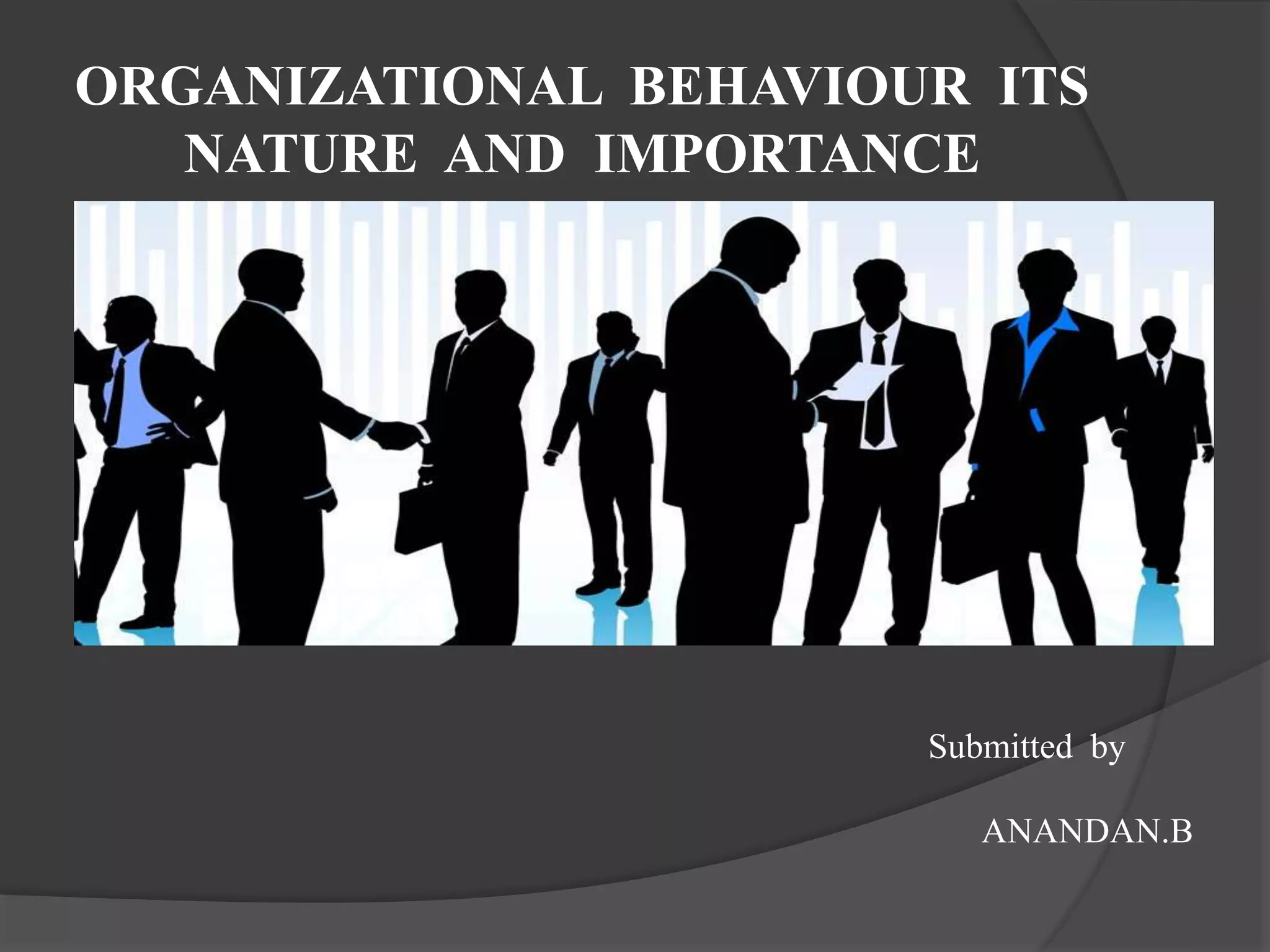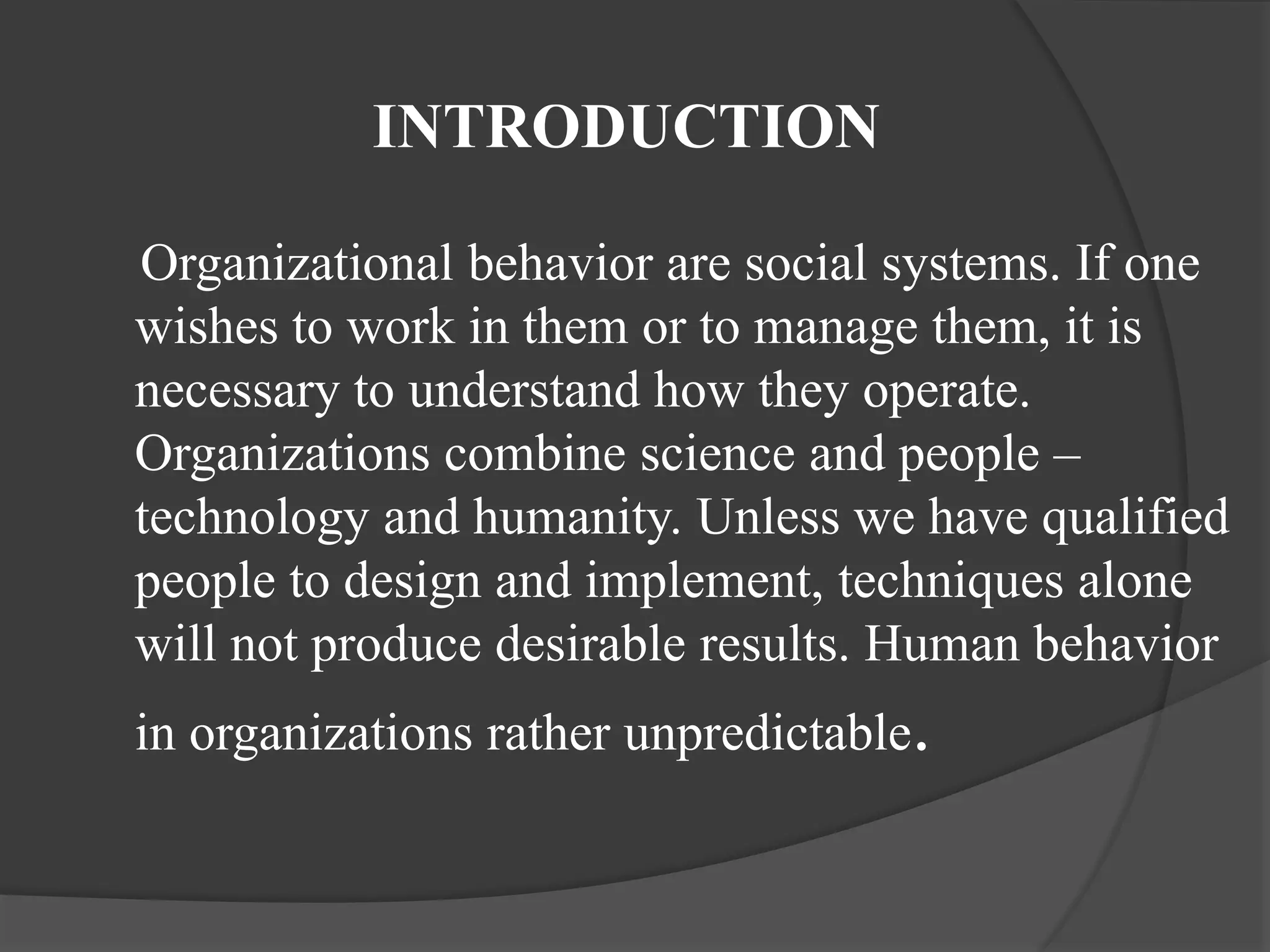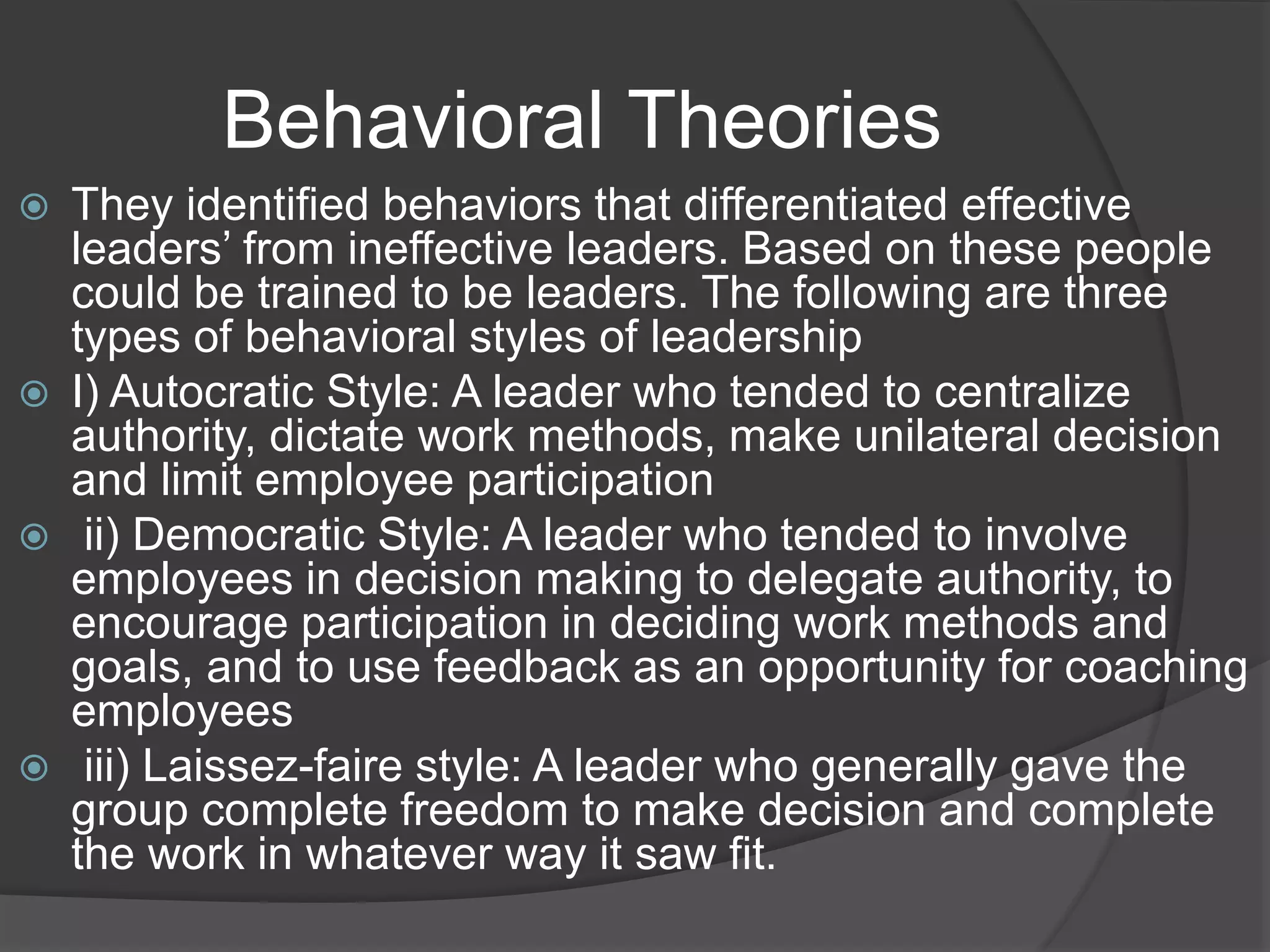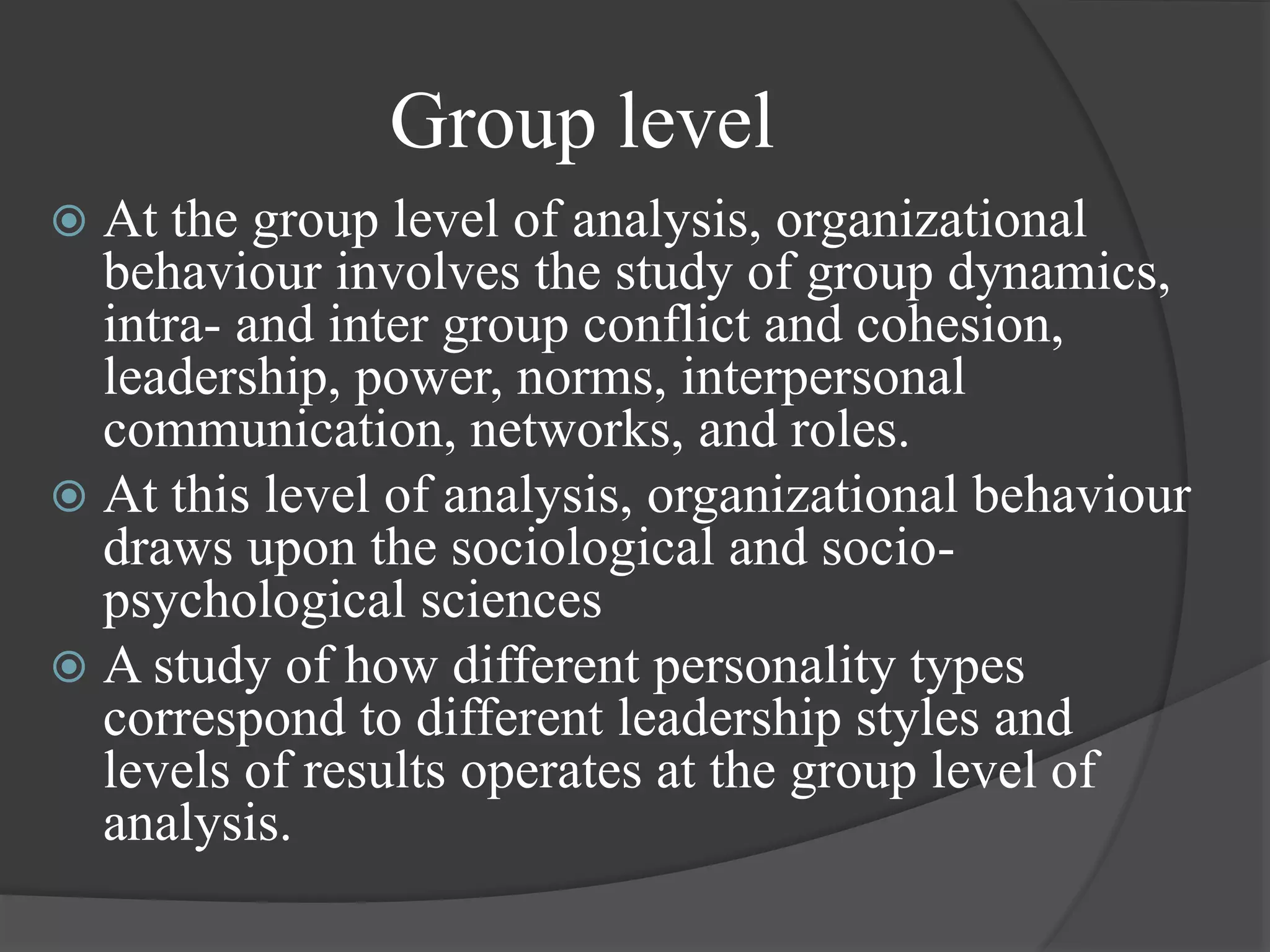This document provides an overview of organizational behavior. It defines organizational behavior as the study and application of knowledge about human behavior in organizations. It notes that organizational behavior is an interdisciplinary field that draws from psychology, sociology, and other behavioral sciences. The document also discusses the nature of organizational behavior, describing it as both a science and an art. It notes that organizational behavior focuses on understanding people's behavior from a humanistic perspective in order to enhance worker well-being and organizational effectiveness.



















